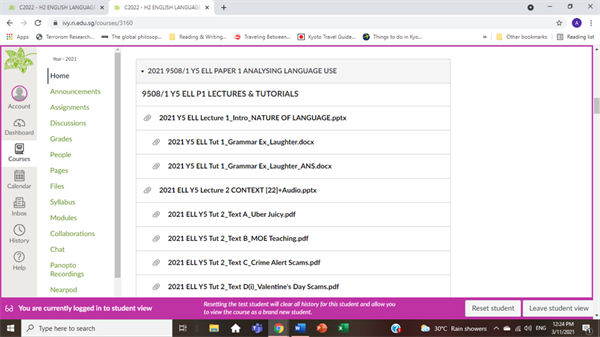It is not about learning the correct use of language (it’s a given that you have mastered this) but rather, it’s about learning what ‘correctness’ actually entails (in fact, the more relevant word to use here is ‘appropriateness’,
rather than ‘correctness’).
You study how language is used in various contexts to make meaning. In this course, you will be learning various linguistics tools like semantics and phonology as well as various sociolinguistics
concepts like political discourse, language and gender, social attitudes towards standards etc.
It’s not all theory though. Through the study of authentic texts, you get to analyse how language is used to create meaning – both
linguistic and social meanings. You’ll also be discussing linguistic issues in society. In a nutshell, you learn about language use and language variation and change.
How is it different from English Literature?
You’ll
analyse almost all types of spoken and written texts except literary ones. There are no set texts to focus on, but rather you will be analysing samples of authentic texts e.g. advertisements, conversations, news reports, online articles etc.

A page of the Y5 ELL module on Ivy, our school learning portal. Students will have access to lecture and tutorial notes, as well as assignment debriefs, sample essays and many other relevant and interesting ELL materials for Papers 1 and 2. Wednesdays, also known as Gap Day, allow students time to access their lectures in their own time and at their own pace. Tutorials which are synchronous face-to-face lessons (or home-based learning, i.e., HBL, if the need arises) allow students to follow up on the lectures and tutorial tasks such as group discussions and presentations. Tutorials are weekly opportunities for students to clarify, query and process what they have learnt in their online asynchronous lectures.